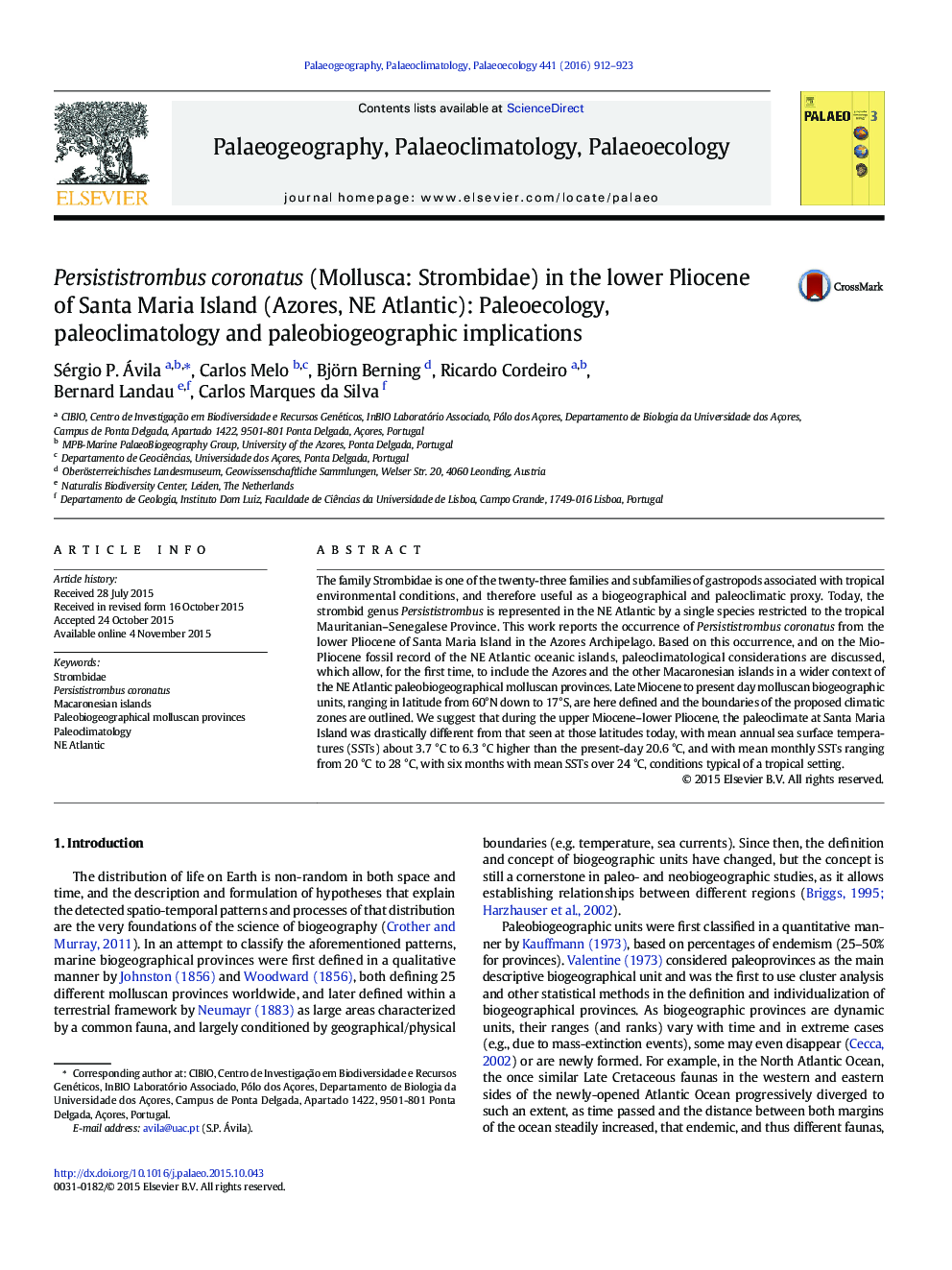| Article ID | Journal | Published Year | Pages | File Type |
|---|---|---|---|---|
| 6349374 | Palaeogeography, Palaeoclimatology, Palaeoecology | 2016 | 12 Pages |
â¢Persististrombus coronatus is a thermophilic species that today lives in tropical waters.â¢This species is therefore useful as a biogeographical and paleoclimatic proxy.â¢Persististrombus coronatus is reported for the first time from the Lower Pliocene of Santa Maria Island (NE Atlantic).â¢The Mio-Pliocene paleoclimate at Santa Maria Island was drastically different from that seen at those latitudes today.â¢Mean annual sea surface temperatures were about 3.7 °C to 6.3 °C higher than the present-day 20.6 °C for the Azores.
The family Strombidae is one of the twenty-three families and subfamilies of gastropods associated with tropical environmental conditions, and therefore useful as a biogeographical and paleoclimatic proxy. Today, the strombid genus Persististrombus is represented in the NE Atlantic by a single species restricted to the tropical Mauritanian-Senegalese Province. This work reports the occurrence of Persististrombus coronatus from the lower Pliocene of Santa Maria Island in the Azores Archipelago. Based on this occurrence, and on the Mio-Pliocene fossil record of the NE Atlantic oceanic islands, paleoclimatological considerations are discussed, which allow, for the first time, to include the Azores and the other Macaronesian islands in a wider context of the NE Atlantic paleobiogeographical molluscan provinces. Late Miocene to present day molluscan biogeographic units, ranging in latitude from 60°N down to 17°S, are here defined and the boundaries of the proposed climatic zones are outlined. We suggest that during the upper Miocene-lower Pliocene, the paleoclimate at Santa Maria Island was drastically different from that seen at those latitudes today, with mean annual sea surface temperatures (SSTs) about 3.7 °C to 6.3 °C higher than the present-day 20.6 °C, and with mean monthly SSTs ranging from 20 °C to 28 °C, with six months with mean SSTs over 24 °C, conditions typical of a tropical setting.
